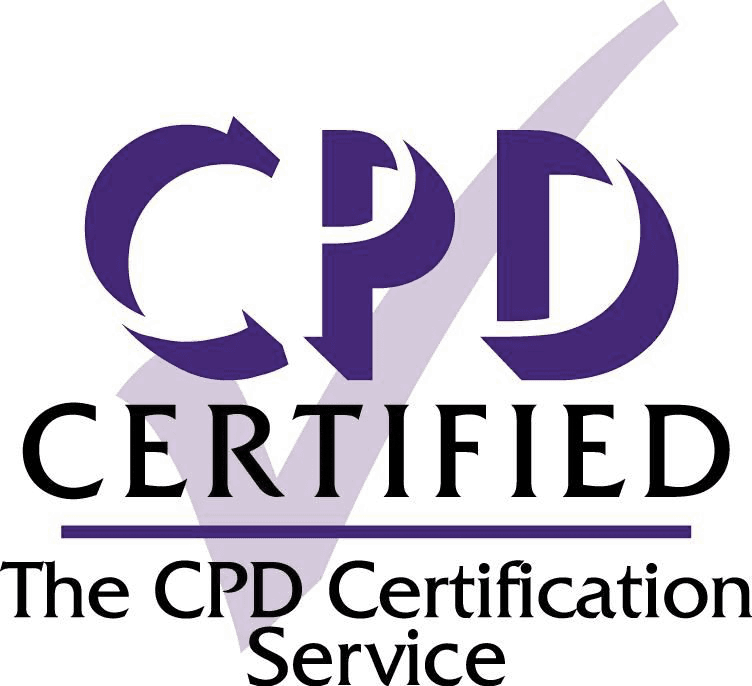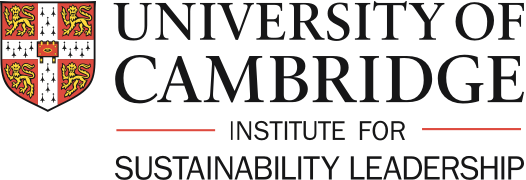
Sustainable Supply Chain Management
Online short course
Leverage innovation and apply new technologies to create effective, resilient, and sustainable supply chains.
8 weeks, excluding 1 week orientation.
7–10 hours of self-paced learning per week, entirely online.
Email: cambridgecisl@getsmarter.com
Call: +44 1223 622 443
About this course
As global warming approaches an irreversible tipping point, the growing impact of global supply chains on the environment and society has led to ever-greater scrutiny. At the same time, their continued growth and expanded reach is increasing their complexity, integration, and dependence on social and environmental factors. Organisations need to consider the evolution of their supply chains to survive this age of disruption.
Building on the University of Cambridge Institute for Sustainability Leadership’s commitment to the United Nations’ Sustainable Development Goals (SDGs), the Sustainable Supply Chain Management online short course addresses these concerns by incorporating innovative business models, integrated analytics, the formulation of strategic KPIs, and the latest sustainability technology for supply chains. You’ll be exposed to supply chain management through a new lens and become empowered to effectively manage supply chains within increasingly sustainable and dynamic global markets.

This course is certified by the United Kingdom CPD Certification Service, and may be applicable to individuals who are members of, or are associated with, UK-based professional bodies. The course has an estimated 80 hours of learning.
Note: should students wish to claim CPD activity, the onus is upon them. The University of Cambridge Institute for Sustainability Leadership and GetSmarter accept no responsibility, and cannot be held responsible, for the claiming or validation of hours or points.

The Sustainable Supply Chain Management online short course from the University of Cambridge Institute for Sustainability Leadership (CISL) is accredited by the International Supply Chain Education Alliance (ISCEA). ISCEA is the global leader in supply chain education, certification, and recognition courses. By completing this course, students will receive globally recognised skills in the supply chain occupation, networking opportunities with like-minded individuals, and discounted fees for Certified Sustainable Supply Chain Professional (CSSCP) certification. For more information on the benefits of taking this ISCEA-accredited course, click here.
Please note that GetSmarter and CISL bear no responsibility for the claiming of these benefits with ISCEA. The onus, therefore, falls on you to do so.
What this course covers
This online short course equips you with the tools to develop sustainable and climate-positive supply chain practices that are more resilient and efficient, to align with the transition to a low carbon global economy. You’ll walk away with an understanding of how resource scarcity and rising inequality are making supply chains increasingly vulnerable, prompting immediate action for your organisation and relevant stakeholders. Develop the necessary skills and perspective needed to take a more sustainable and resilient approach to supply chain management.
Through eight interactive modules, you’ll gain an understanding of sustainable supply chain design, sustainability analytics and new technologies. You’ll learn how efficient supply chains can improve traceability and have a positive ripple effect on the environment, economy, and society as a whole. Upon completing the course, you’ll be equipped with an action plan that you can use to apply your learnings to your current role and organisation.
This course forms part of the Sustainable Business Operations bundle from CISL, where you can sign up for two courses at a reduced rate and on one of several start dates throughout the year.
A powerful collaboration
The University of Cambridge Institute for Sustainability Leadership (CISL) is collaborating with digital education provider GetSmarter, a 2U, Inc. brand, to provide an interactive and supported learning experience, equipping you to lead with impact in a changing business world.
About CISL
CISL is an impact-led institute within the University of Cambridge that activates leadership globally for people, nature and climate. Through our global network and hubs in Cambridge, Cape Town and Brussels, we work with leaders and innovators across business, finance and government to accelerate action for a sustainable future.
Trusted since 1988 for our rigour and pioneering commitment to learning and collaboration, we create safe spaces to challenge and support those with the power to act.

Gain access to the CISL International Alumni Network
The CISL Network comprises more than 30,000 senior leaders and leading practitioners who represent business, the public sector and civil society in every industry on every continent. Upon successful completion of this course, you’ll become an entry-level member of this prestigious global community. This forum includes students from all of CISL’s executive education programmes spanning the past 25 years, alumni of CISL’s graduate programmes, members of our business platforms and expert faculty and contributors to our work. Through it, we aim to provide opportunities for members of our Network to keep up to date with the latest thinking and action, the space to debate ideas and share experiences and the chance to collaborate and influence change.

About GetSmarter
GetSmarter, part of edX, partners with the world's leading universities and institutions to select, design and deliver premium online short courses with a data-driven focus on learning gain.
Technology meets academic rigour in GetSmarter’s people-mediated model, which enables lifelong learners across the globe to obtain industry-relevant skills that are certified by the world’s most reputable academic institutions.
As a student of this course, you will also gain unlimited access to edX’s Career Engagement Network at no extra cost. This platform will provide you with valuable career resources and events to support your professional journey. You can look forward to benefits including rich content, career templates, webinars, workshops, career fairs, networking events, panel discussions and exclusive recruitment opportunities to connect you with potential employers.
What you’ll learn
Meet and engage with your learning and peer networks as you navigate the Online Campus.
- Become familiar with your new virtual classroom
- Meet your success team and get to know your fellow classmates
Revisit basic supply chain principles before expanding your perspective on the impact and influence of global supply chains.
- Recall the foundational underpinnings of supply chain management
- Define the resource-based view of supply chains
- Identify different examples of supply chains in your professional context
- Outline your current approach to supply chain management within your context
- Demonstrate how systems thinking expands perspectives on supply chains
- Determine how power dynamics impact supply chains
- Articulate the impact of global supply chains on business, society, and the environment
Uncover the challenges that a volatile, uncertain, complex and ambiguous (VUCA) world poses to supply chains, and the mitigating impact of a global perspective.
- Discuss the big-picture trends and complex systems that influence supply chains in the broader external context
- Identify potential supply chain management challenges in the context of an organisation or sector, considering competitors and stakeholders
- Interpret how supply chain disruption, risk, and compliance play out in your context
- Illustrate how a global framework can be applied to create a more resilient and sustainable supply chain
Expand your conception of value and rethink the impact of your supply chain, with a global perspective on value and dependencies.
- Describe how conventional value is accumulated along a supply chain
- Identify how a broader definition of value could be applied to a supply chain
- Demonstrate how measuring value can be used to understand a supply chain
- Interpret a range of dependencies that are important for a particular company's supply chain
- Determine the different positive and negative impacts that a company's supply chain can have, including on society and the environment
- Apply the broad definition of value to a practical example
Discover how a life cycle approach and innovative business models can revitalise supply chain design.
- Describe the development of supply chains to date from a resource-based approach
- Review how an incremental design approach can constrain integration
- Illustrate the potential inefficiencies resulting from an incremental design approach
- Compare the role of conscious design to incremental design when dealing with complex supply networks
- Contrast linear and circular approaches to creating resilient and efficient supply chain design
- Analyse the potential contribution of business model innovation towards resolving supply chain challenges
- Evaluate the contribution of circularity and business model innovation with a practical example
Reflect on the importance of analytics and key performance indicators (KPIs) for optimising supply chain management.
- Identify how developing integrated end-to-end analytics can optimise supply chain performance
- Indicate the tools that can help supply chain managers to overcome obstacles and identify enablers for expanding analytics
- Illustrate the demand for expanded KPIs to embrace social and environmental concerns
- Relate a new generation of KPIs with existing KPIs along the supply chain
- Analyse the challenges of KPIs that are not self-validating
- Deconstruct the nature of the KPIs and stakeholders that are required to transfer data along the supply chain
Discover the role of technology in facilitating integrated supply chains and the opportunities for increased traceability.
- Illustrate the incoming technologies that will contribute towards an integrated supply chain
- Show how new technologies will transform existing supply chains
- Analyse how these technologies can incorporate expanding data requirements
- Judge how the application of these technologies will have a transformational effect on a business and its supply chain
- Debate how the cumulative application of these technologies will have a transformational effect on society
Consider the range of relationships that exist within contemporary supply chains, and how to extend and strengthen these relationships to optimise the design and impact of supply chains.
- Recognise the different forms and functions of contemporary supply chain partnerships
- Identify the risks and opportunities associated with business-to-business and business-to-non-business partnerships and the efforts to measure their success
- Use different partnership tools to undertake stakeholder and context mapping using a practical supply chain scenario
- Analyse the opportunities that come from collaborating with key stakeholders and entering into partnerships to create new value
- Reflect on the benefits of collaborative mechanisms in supply chains for business, society, and the environment using practical scenarios
Recognise your ability to effect change, consolidate your support network, and develop a strategy to realise your goals.
- Identify your role as an influencer of change and the barriers to taking action in your own context
- Illustrate the importance of gaining internal support for overcoming barriers to organisational culture change
- Investigate the resource implications of adopting different approaches to your supply chain
- Identify members within your network who can assist you with influencing change in your supply chain
- Investigate a range of support mechanisms beyond your existing network that can help you be more effective in your current role
- Develop an action plan for leveraging your support network to reach your personal objectives within your organisation or sphere of influence
- Write a reflection on how your views on supply chains have changed since the start of the course
Who should take this course
This online course is suited to professionals looking to support their organisation by developing sustainable supply chain strategies that are focused on the future. It’s beneficial for junior, middle, and senior management who want to understand how to incorporate new technologies and analytics to optimise their supply chains and benefit their organisations. It’s also highly relevant for strategic professionals, consultants, and individuals in related positions (such as operations managers) looking to change their career focus to supply chain management.
This course is for you if you want to:
Develop new competencies
Understand the environmental, social, and technological trends that are revolutionising supply chains.
Drive organisational change
Equip yourself and your business with the tools needed to implement sustainable change in your existing supply chains.
Expand your perspective
Discover the role of innovation, analytics, and technology in facilitating integrated supply chains that prioritise sustainability.
Build value
Learn how to leverage supply chain transformation to meet organisational objectives and create long-term value.
About the certificate
Upon successful completion of the course, you’ll earn a digital certificate of completion from a world-leading sustainability institution, the University of Cambridge Institute for Sustainability Leadership (CISL).
Assessment is continuous and based on a series of practical assignments completed online. In order to be issued with your digital certificate of completion, you’ll need to meet the requirements outlined in the course handbook. The handbook will be made available to you as soon as you begin the course.
Your digital certificate of completion will be issued in your legal name and sent to you via email. All certificate images are for illustrative purposes only and may be subject to change at the discretion of the University.
Who you’ll learn from
These subject matter experts from the University of Cambridge Institute for Sustainability Leadership guide the course design and appear in a number of course videos, along with a variety of industry professionals
Your Course Convenors

Martin Roberts
Director of Digital Learning, the University of Cambridge Institute for Sustainability Leadership

Ian Ellison
Senior Associate, the University of Cambridge Institute for Sustainability Leadership
Guest Lecturers
Aanand Davé
Technical Lead, decisionLab
Catalina Pislaru
Senior Project Manager of Drive Sustainability, CSR Europe
Cath Tayleur
Senior Programme Manager, CISL
Dame Polly Courtice
Founder and Director, CISL
David Buxton
Co-Founder, DSE Consulting and decisionLab
David Lawrence
Senior Associate, CISL; Supply Chain Independent Consultant
Doroteya Vladimirova
Director of Regenerative Business Models Programme, IfM; Fellow, CISL
Emily Shuckburgh
Director, University of Cambridge Carbon Neutral Futures Initiative, and Reader in Environmental Data Science, Department of Computer Science and Technology, CISL
Feriel Zerouki
Senior Vice President of International Relations, De Beers Group
Fiona Solomon
CEO, Aluminium Stewardship Initiative
Jemma Green
Co-Founder and Chairman, Power Ledger
Louise Nicholls
Retail and Supply Chain Consultant
Nancy Bocken
Professor in Sustainable Business, Lund University
Paul Lister
Head of Ethical Trade and Environmental Sustainability Team, Primark
Purvi Shah
Senior Manager of Ethical Initiatives, De Beers Group
Ramon Arratia
Senior Associate, CISL; Sustainability and Public Affairs Director, Ball Beverage Packaging Europe
Sonya Bhonsle
Global Head of Supply Chain Program, CDP
Stefan Crets
Executive Director and Facilitator of Drive Sustainability, CSR Europe
Tara Norton
Managing Director, Supply Chain, BSR
Tony Juniper
Environmentalist; Fellow, CISL
William Day
Sustainability Advisor, PwC; Fellow, CISL
Zoë Arden
Associate Director, CISL
Alan Knight
Global Head of Sustainable Development and Corporate Responsibility; Co-Chair, Responsible Steel
How you’ll learn
Every course is broken down into manageable, weekly modules, designed to accelerate your learning process through diverse learning activities:
- Work through your downloadable and online instructional material
- Interact with your peers and learning facilitators through weekly class-wide forums and reviewed small group discussions
- Enjoy a wide range of interactive content, including video lectures, infographics, live polls, and more
- Investigate rich, real-world case studies
- Apply what you learn each week to quizzes and ongoing project submissions, culminating in an action plan to manage sustainable supply chains effectively within your organisation
Your success team
GetSmarter, with whom CISL is collaborating to deliver this online course, provides a personalised approach to online education that ensures you’re supported throughout your learning journey.
Head Tutor
A subject expert who will guide you through content-related challenges.
Success Advisor
Your one-on-one support available during University hours (8am–4pm GMT) to resolve technical and administrative challenges.
Global success team
Available 24/7 to solve your tech-related and administrative queries and concerns.
Technical requirements
Basic requirements
In order to complete this course, you’ll need a current email account and access to a computer and the internet, as well as a PDF Reader. You may need to view Microsoft PowerPoint presentations, and read and create documents in Microsoft Word or Excel.
Browser requirements
Campus. Although this is not a requirement, we have found that this browser performs best for ease of access to course material. This browser can be downloaded here.
Additional requirements
Certain courses may require additional software and resources. These additional software and resource requirements will be communicated to you upon registration and/or at the beginning of the course. Please note that Google, Vimeo, and YouTube may be used in our course delivery, and if these services are blocked in your jurisdiction, you may have difficulty in accessing course content. Please check with an Enrolment Advisor before registering for this course if you have any concerns about this affecting your experience with the Online Campus.